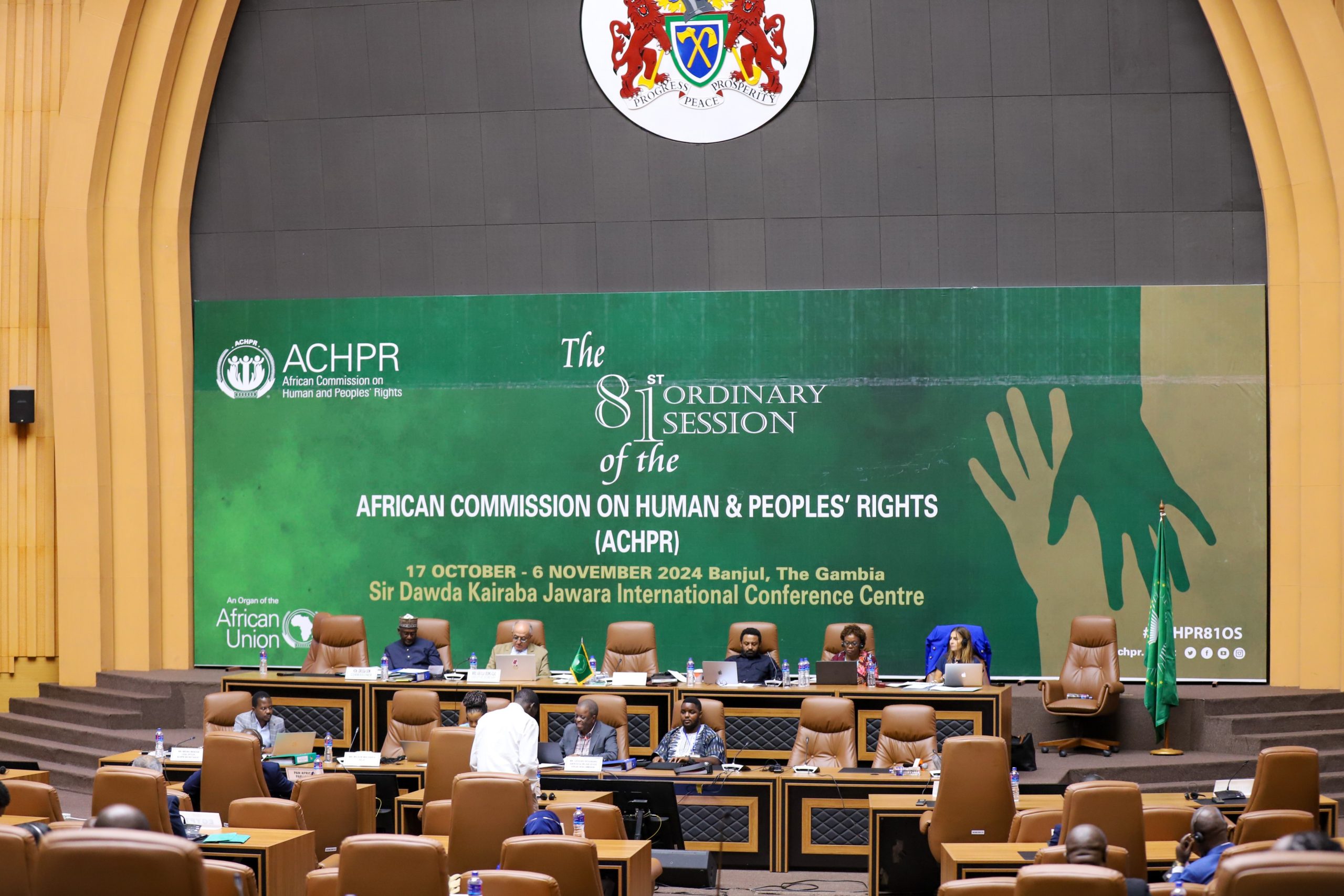Editor's note: The Kenya Human Rights Commission (KHRC) holds observer status with the African Commission on Human and Peoples' Rights (ACHPR). During this year’s 81st ordinary session, KHRC presented a statement urging the ACHPR to take immediate action to address the ongoing human rights crisis in Kenya.
Introduction
The Kenya Human Rights Commission (KHRC) presents this statement to express grave concerns regarding ongoing human rights violations and governance challenges in Kenya under President William Ruto’s administration. Despite Kenya’s commitment to human rights through regional and international obligations, the situation reveals a stark contradiction. The Ruto regime has systematically undermined human rights protections, weakened democratic institutions, and fostered a culture of impunity, violating the principles enshrined in the African Charter on Human and Peoples' Rights and Kenya’s Constitution.
Human rights violations
Since taking office in September 2022, the Ruto regime has been implicated in numerous grave human rights violations, many constituting crimes against humanity, yet no one has been held to account. Key areas of concern include:
a) Unlawful killings and enforced disappearances
The police continue to employ excessive force during peaceful protests, leading to at least 63 civilian deaths, 65 enforced disappearances, and over 1,400 unlawful detentions, particularly during the 2024 Finance Bill protests. No state perpetrator has been brought to justice.
b) Suppression of civic space and media
The government has intensified restrictions on civic engagement and freedom of expression. Civil society organizations (CSOs) face unwarranted scrutiny and harassment, with state agencies unlawfully investigating 16 organizations since July 2024, alleging their involvement in the otherwise organic Gen Z uprising. Media freedoms have also been curtailed, limiting live coverage of protests and silencing dissenting voices.
c) Economic and social rights violations
The Ruto regime’s economic policies have deepened suffering among marginalized communities, particularly during the 2024 floods that displaced thousands and killed at least 228 people in informal settlements. The regime further imposed punitive taxation through various finance bills and laws, undermining the realization of economic and social rights as outlined in Article 43 of Kenya’s Constitution. This continues with the forceful introduction of the Social Health Insurance Fund, with many Kenyans suffering chronic diseases being forced to forgo essential medical procedures.
d) Community rights and post-mining land use
KHRC is deeply concerned about the inadequate implementation of equitable revenue-sharing mechanisms for communities affected by mining activities. Despite legal provisions mandating the allocation of royalties to local communities, these revenues have never been disbursed, and the requirements are applied inconsistently, resulting in communities’ exclusion from crucial decision-making processes concerning their resources.
Post-mining land use is particularly sensitive in Kenya, where land issues are emotive and intertwined with historical injustices. Vulnerable communities are often excluded from government-commissioned post-mining land committees, leaving them without a voice in decisions that directly impact their livelihoods and environments. This exclusion, combined with fears of land grabbing, places these communities at further risk as mining operations cease and the land becomes a target for external interests.
Call for action by the African Commission
We urge the African Commission on Human and Peoples' Rights to take immediate action in addressing the human rights crisis in Kenya, specifically to:
Initiate an investigation: Establish an independent fact-finding mission to investigate human rights violations, including unlawful killings, enforced disappearances, arbitrary arrests, and the suppression of civic space.
Hold government accountable: Press the Kenyan government to uphold its obligations under the African Charter, Kenya’s Constitution, and other regional and international treaties that the country is signatory to, and ensure justice for victims of human rights violations.
Engage the African Union: Given Kenya’s poor human rights record, consider withdrawing support for the country’s international engagements, including its undeserved seat in the United Nations Human Rights Council.
Advocate for community rights: Ensure transparency in royalty distribution and empower communities to participate in post-mining land use planning.
Support civil society and media freedoms: Ensure Kenya adheres to African Union standards for civil society engagement, media freedom, and the protection of human rights defenders.
Conclusion
KHRC is deeply concerned about the regressive human rights situation in Kenya. The regime’s disregard for the rule of law and constitutional protections cannot go unchecked by the African Commission.
In the heart of every African lies a cry for justice; may the African Union be the caring mother who listens and acts to protect her children. This call for justice shows the urgent need for accountability and compassion in addressing human rights violations.
We implore the Commission to recognize the profound impact of these violations on the fabric of our society and to take decisive action to uphold the values of human rights.
We urge the Commission to hold the Kenyan government accountable, ensure justice for victims, and reaffirm the principles of human rights, transparency, and good governance across the continent.


